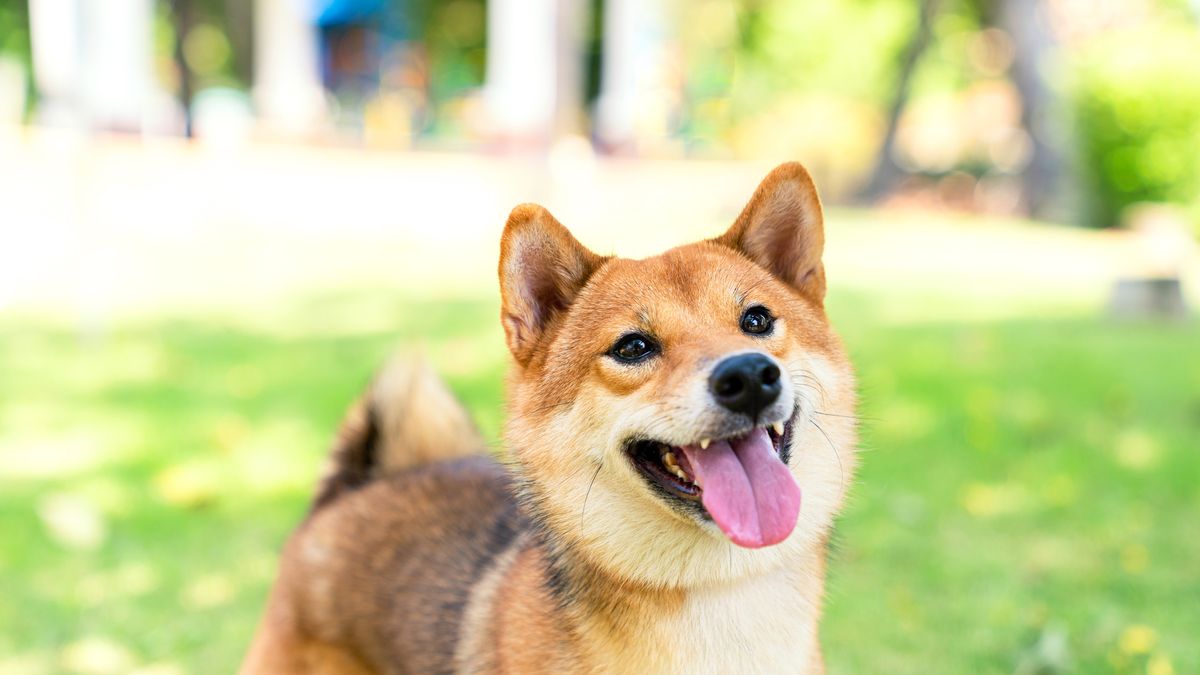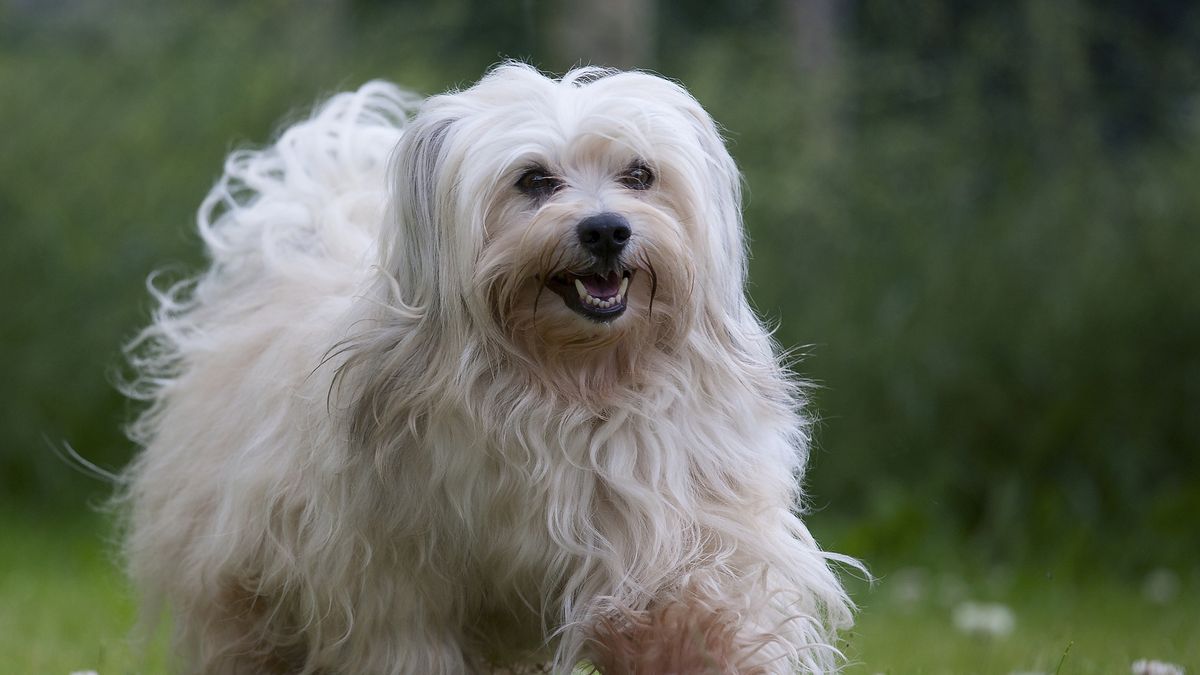What Small Dog Breed Doesn’t Bark? Top Picks
Last Updated on May 5, 2024 by Petpalace54
The Basenji is a small dog breed that doesn’t bark. This unique breed produces a yodel-like sound instead of barking.
If you’re looking for a what Small Dog Breed Doesn’t Bark & a quiet companion, the Basenji may be the perfect fit for you. In addition to being a barkless breed, they are also known for being affectionate, playful, and energetic. Other small dog breeds that bark less than others include the Italian Greyhound, Cavalier King Charles Spaniel, French Bulldog, Chinese Crested Dog, Shiba Inu, Shih Tzu, Boston Terrier, and Havanese.
However, it’s important to note that every dog is unique and may still bark on occasion, especially if they are feeling anxious or territorial. It’s important to consider a dog’s personality, energy level, and temperament before bringing them into your home. With proper training & socialization, any dog can become a well-behaved and loving companion.
Table of Contents
- 1 Basenji – The Barkless Dog Breed
- 2 Other Small Dog Breeds That Bark Less
- 3 Small Dog Breeds That Bark The Most
- 4 Factors To Consider When Choosing A Small Dog Breed
- 5 The Benefits Of Having A Small Dog
- 6 Issues With Owning Small Dogs
- 7 Training Techniques To Reduce Barking In Small Dogs
- 8 Activities To Keep Small Dogs Occupied And Quiet
- 9 Frequently Asked Questions On What Small Dog Breed Doesn’t Bark
- 10 Summing Up
Basenji – The Barkless Dog Breed
If you’re searching for a small dog breed that doesn’t bark, the Basenji is one of the breeds that comes to mind. Known as the barkless dog breed, the Basenji is a unique breed with surprising attributes.
Introduction To Basenji
The Basenji is an ancient dog breed that originated from Africa, where they were used for hunting small game. They are considered small to medium-sized dogs with a height of up to 17 inches and a weight of up to 24 pounds. Apart from being a barkless breed, the Basenji are also known to be a clean breed, as they groom themselves just like cats.
Unique Sound Production
While the Basenji is considered a barkless breed, they make sounds that resemble a yodel or chortle. Interestingly, the Basenji’s unique sound production is attributed to the shape of their larynx, which is not common in other dog breeds. This trait makes them a great option for those who live in apartments or close quarters.
Appearance And Personality Traits
The Basenji is characterized by their short, shiny coat, which ranges from red to black, & their erect ears. They are known to be independent, curious, and energetic dogs with a strong prey drive. Additionally, Basenjis are loyal and affectionate when they have a strong bond with their owners.
Despite their barkless nature, Basenjis are not silent dogs, and they can actually be quite vocal. They produce various sounds aside from their yodel or chortle, such as growls, whines, and screams, to communicate their needs and emotions to their owners.
Ultimately, if you’re searching for a small dog breed that doesn’t bark much, the Basenji is worth considering. With their unique sound production, clean nature, & affectionate personality traits, this breed is a great option for those who desire a low-energy dog with a strong bond with their owners.
Other Small Dog Breeds That Bark Less
Looking for a small dog breed that doesn’t bark much? Consider Basenji, Italian Greyhound, Cavalier King Charles Spaniel, French Bulldog, Chinese Crested Dog, Shiba Inu, Shih Tzu, Boston Terrier, or Havanese. These breeds are among the quietest and less vocal dogs, making them ideal for people living in apartments or close neighborhoods.
Other Small Dog Breeds that Bark Less
If you’re looking for small dog breeds that don’t bark much, you’re in luck. A number of breeds are known for being relatively quiet, making them ideal for apartments or homes where excessive barking is a no-no. Let’s take a look at some of the top contenders:
Cavalier King Charles Spaniel
Cavalier King Charles Spaniels are known for their friendly, affectionate nature and tend to be quiet dogs. They’re relatively small in size & are great for apartment living. These dogs make excellent family pets and are easy to train, making them an ideal choice for first-time dog owners.
French Bulldog
French Bulldogs are a popular breed that is known for being affectionate and loving dogs. They are also relatively quiet, making them a great choice for apartment living. These dogs are easy to train & have a low exercise requirement, which makes them a great choice for families with busy schedules.
Bulldog
Bulldogs are a laid-back breed that is well-known for their affectionate nature. They are also relatively quiet dogs, making them perfect for apartments or homes where excessive barking is a no-go. Bulldogs are easy to train & make great family pets, so they’re an excellent choice for families with children.
Borzoi
Borzois, also known as Russian Wolfhounds, are a quiet breed that is known for their grace and elegance. They are medium-sized dogs that are perfect for those who want a larger dog without the excessive barking. These dogs are affectionate and loyal & make great family pets.
Scottish Deerhound
Scottish Deerhounds are a large breed that is known for being quiet and gentle. They are excellent with children & make great family pets. These dogs are relatively low-energy, so they don’t require a lot of exercise. Their gentle nature makes them great for those who want a dog that won’t bark excessively.
Soft-coated Wheaten Terrier
Soft-Coated Wheaten Terriers are another small breed that is known for being relatively quiet. They are affectionate & loyal dogs that are easy to train. These dogs are great for families with children and make excellent apartment pets.
Shiba Inu
Shiba Inus are a medium-sized breed that is known for being independent and quiet. They are not overly affectionate dogs but are still loyal to their owners. These dogs are great for those who want a dog that won’t bark excessively, but they do require daily exercise & mental stimulation.
Small Dog Breeds That Bark The Most
If you’re looking for a small dog breed that doesn’t bark much, consider the Basenji, Italian Greyhound, Cavalier King Charles Spaniel, French Bulldog, Chinese Crested Dog, Shiba Inu, Shih Tzu, Boston Terrier, or Havanese. These breeds are known for being quieter than most small dogs that tend to bark a lot.
Small Dog Breeds that Bark the Most
If you’re thinking of getting a small dog, it’s important to consider how much noise they are likely to make. While some small breeds are known for their quiet nature, others bark constantly. Here are six small dog breeds that are notorious for their excessive barking:
–
Chihuahua
Chihuahuas are known for being feisty little dogs that love to bark. They are easily excitable & can become anxious, leading to excessive barking.
Beagle
Beagles are hunting dogs, originally bred to bark when they scent prey. This trait is still present in modern-day beagles, making them vocal and prone to barking.
Siberian Husky
Siberian Huskies are known for their tendency to howl, but they can also bark excessively if they are not trained properly. They are energetic dogs that need plenty of exercise & mental stimulation.
Yorkshire Terrier
Yorkshire Terriers, or “Yorkies” for short, are cute little lap dogs that are known for their yappy barks. They can become quite territorial & protective, leading to excessive barking.
Dachshund
Dachshunds are often called “wiener dogs” for their long, sausage-like bodies. They are also known for their loud barks, which can be triggered by anything from strangers to squirrels.
Miniature Schnauzer
Miniature Schnauzers are intelligent and active dogs that make great companions. However, they are also prone to barking & can become quite vocal if they are not trained properly.
Thus, if you’re looking for a small dog that doesn’t bark much, there are a few breeds to consider. Basenji, Italian Greyhound, Cavalier King Charles Spaniel, French Bulldog, Chinese Crested Dog, Shiba Inu, Shih Tzu, Boston Terrier, and Havanese are all small breeds that are known for being relatively quiet. Keep in mind that every dog is unique and may have their own tendency to bark, regardless of breed.

Credit: www.amazon.com
Factors To Consider When Choosing A Small Dog Breed
When it comes to choosing What Small Dog Breed Doesn’t Bark, there are a few factors to consider to ensure that you pick a pooch that suits your lifestyle and living situation. Small dogs are usually popular because they are cute, portable, and make great lap warmers, but not all small dog breeds are created equal, especially when it comes to barking. If you don’t want a dog that barks too much and disturbs your peace, you need to do some research and choose wisely.
Living Space
The first thing to consider when adopting a dog, regardless of size, is your living situation. Small dogs are more suitable for apartment living because they take up less space, but that does not mean all small breeds always lead sedentary lives. You need to ensure that you can provide enough space for your furry friend to move around & exercise. Keep in mind that different breeds have differing amounts of energy and exercise requirements, so choose a breed that fits well with your living space.
Activity Level
Small breeds can usually get all the exercise they need indoors and often do not require long walks. But some smaller breeds tend to bark more than others, especially if they become bored or restless. The activity level of a breed can also impact their barking tendencies. If you lead a busy lifestyle that requires you to be away from home for extended periods, choose a breed with low activity level requirements.
Allergies
If you have allergies, you need to choose a breed that sheds less to keep your allergies in check. Low-shedding breeds may be preferable if you have allergies, but keep in mind that low-shedding breeds require more grooming than their shedding counterparts. Some breeds are also more susceptible to allergies than others. Before adopting a dog, make sure you research the breed’s potential susceptibility to food or environmental allergies.
Training
Another factor to consider when adopting a small breed is their level of trainability. Small dogs can be notoriously difficult to train, and some breeds have less of a tendency to obey commands than others. If you want a dog that is easy to train and doesn’t bark unnecessarily, choose a breed that is known for its obedience & trainability. Look for breeds with a calm and even-tempered nature; they are more likely to follow commands and not bark too much.
In conclusion, when choosing a small breed that doesn’t bark too much, consider your living situation, activity level, allergies, & the dog’s trainability. Keep in mind that while some breeds may bark more than others, training, exercise, and mental stimulation can help curb excessive barking habits. With the right research and care, you can find a small breed that is well-suited to your lifestyle & enriches your life without causing too much noise.
The Benefits Of Having A Small Dog
Looking for a small dog breed that doesn’t bark? The Basenji, Italian Greyhound, Cavalier King Charles Spaniel, French Bulldog, Chinese Crested Dog, and Shiba Inu are popular options that are known for being quieter than other small breeds. Having a small dog can provide many benefits, such as being suitable for apartment living and requiring less exercise, making them great companions for individuals or families with busy lifestyles.
Low Maintenance
Small dog breeds are known for their ease of maintenance, which is a huge advantage for busy pet owners. They require less food, have smaller living spaces, and need less exercise than their larger counterparts. This makes them perfect for apartment living or for those who have limited outdoor space. They also shed less and require less grooming, which can save time & money.
Affordability
The cost of owning a small dog breed is considerably less than the cost of owning a larger breed. Smaller breeds require less food, which means smaller pet food bills. They also require less space & fewer accessories. So, if you’re on a budget, a small dog is a financially savvy choice.
Portability
Another benefit of having a small dog breed is portability. Small dogs are much easier to transport than larger breeds. They can be taken on planes, trains & buses with ease. They also take up less space in cars, making them perfect for road trips. And, if you’re going on vacation, they can be easily accommodated in hotels.
Companionship
Small dog breeds are known for their loyalty and affectionate personalities. They tend to be more attached to their owners and make perfect companions for those who live alone or have limited human interaction. Small dogs are also great with children, making them the perfect addition to families. They are social animals that thrive on human interaction, making them ideal for those who want a loyal friend.
In conclusion, the benefits of having a small dog breed are many. From low maintenance to affordability, portability to companionship, small dogs are an ideal choice for those who want a lovable companion without the hassle of a large breed. However, with the option of choosing a small breed that doesn’t bark much, such as the Basenji or the Italian Greyhound, you can enjoy all the benefits of having a small dog without the noise.

Credit: www.amazon.com
Issues With Owning Small Dogs
If you’re struggling with owning small dogs due to their tendency to bark, some breeds are less vocal than others. Some examples of small dog breeds that don’t bark much include the Basenji, Italian Greyhound, Cavalier King Charles Spaniel, French Bulldog, Chinese Crested Dog, & Shiba Inu.
Issues with Owning Small Dogs
Small dog breeds are popular amongst dog owners for their adorable looks, compact size, and ease of maintenance. However, owning a small dog comes with its own set of challenges. In this section, we’ll explore some common issues with owning small dogs and provide possible solutions.
Fragility & Health Concerns
Small dogs are generally more fragile than larger breeds, which makes them susceptible to injuries. They may also have a higher risk of certain health concerns, such as dental problems, luxating patellas, & collapsed trachea. To prevent these issues, it’s important to handle your small dog with care and take them for regular check-ups with a veterinarian. Providing a healthy diet, regular exercise, & appropriate dental care can also help maintain their overall well-being.
Vocalization & Training
One of the most common issues with small dog breeds is excessive barking or vocalization. This behavior can become a nuisance to both the owner and the neighbors. To avoid excessive barking, proper training is essential from a young age. Positive reinforcement techniques such as treats and praise can help your dog understand what is expected of them. Socialization with different people & dogs can help them become well-adjusted and less anxious, leading to less barking or growling behavior.
Dental Problems
Small dogs are prone to developing dental problems such as tooth decay, gum disease, and bad breath. It’s important to brush your dog’s teeth regularly and provide dental chews or toys that can help clean their teeth and gums. Additionally, regular dental check-ups and cleanings can help prevent dental problems & keep your dog’s teeth healthy.
Separation Anxiety
Small dogs are known to be more prone to separation anxiety, which can cause them to exhibit destructive behaviors such as chewing, digging, & excessive barking when left alone. To prevent separation anxiety, crate training is a useful technique that can help your dog feel safe and secure when left alone. Additionally, providing plenty of exercise, toys, and mental stimulation can help keep them occupied & reduce anxiety.
In conclusion, while small dogs are adorable and make great companions, they come with unique challenges and concerns. By providing appropriate care, socialization, and training, you can help your small dog thrive and live a happy, healthy life.
Training Techniques To Reduce Barking In Small Dogs
Some small dog breeds are known for excessive barking, but there are some that rarely bark like the Basenji, Italian Greyhound, Cavalier King Charles Spaniel, and French Bulldog. Training techniques can also be used to reduce barking in small dogs.
Training Techniques to Reduce Barking in Small Dogs
Small dogs can be extremely vocal, and their barks can quickly become annoying or even problematic. However, barking is a natural behavior for dogs and can be challenging to overcome. The good news is that with the right training techniques and tools, it’s possible to reduce barking in small dogs without causing harm or distress. Here are some effective techniques you can try:
Positive Reinforcement
Positive reinforcement is a training technique that involves rewarding your dog for good behavior. If your small dog barks excessively, you can use positive reinforcement to train them to stop. Whenever your dog is quiet & relaxed, reward them with treats, praise, or attention. Gradually increase the length of time your dog must remain quiet before receiving a reward. With consistent training, your dog will start to associate quiet, calm behavior with positive things.
Distraction Techniques
Another effective way to reduce barking in small dogs is to use distraction techniques. These techniques involve diverting your dog’s attention away from whatever is causing them to bark. For example, if your dog barks when someone comes to your door, train them to go to a designated spot, such as their bed or crate, whenever the doorbell rings. Give them a treat when they follow the command. Over time, your dog will start to associate the doorbell with going to their spot rather than barking.
Desensitization
Desensitization is a training technique that involves exposing your dog to the trigger that causes them to bark in a controlled and gradual manner. For example, if your dog barks at strangers, start by exposing them to a recorded audio of a dog barking at a low volume. Gradually increase the volume until your dog shows no signs of anxiety or barking. Reward your dog for good behavior throughout the process. Desensitization can be a bit time-consuming, but it’s effective in reducing barking in small dogs in the long run.
Professional Training
If your small dog’s barking is still a challenge even after trying the above techniques, it may be time to consider seeking the help of a professional trainer. A dog trainer can help identify the root cause of your dog’s barking behavior & design a customized training plan to address it. They may use a combination of techniques, such as positive reinforcement, desensitization, and distraction techniques. With professional help, you can effectively reduce barking in your small dog & ensure a peaceful and stress-free living environment for you and your pet.
In conclusion, barking is a natural behavior for dogs and can be challenging to overcome. However, with consistent training & the right techniques, it is possible to reduce barking in small dogs. Try positive reinforcement, distraction techniques, and desensitization. If these don’t work, consider seeking the help of a professional trainer. Remember, patience & persistence are key when it comes to training your furry friend.
Activities To Keep Small Dogs Occupied And Quiet
Looking for a small dog breed that doesn’t bark much? Basenji, Italian Greyhound, Cavalier King Charles Spaniel, French Bulldog, Chinese Crested Dog, Shiba Inu, Shih Tzu, Boston Terrier, and Havanese are great options. Keep them occupied and quiet with activities like puzzle games & interactive toys.
gle.com/search?q=What+Small+Dog+Breed+Doesn%27T+Bark&oq=What+Small+Dog+Breed+Doesn%27T+Bark&aqs=chrome..69i57j0l7.5455j1j7&sourceid=chrome&ie=UTF-8
Activities to Keep Small Dogs Occupied & Quiet
Small dog breeds, such as Basenjis, Italian Greyhounds, Cavalier King Charles Spaniels, and French Bulldogs, are ideal for apartment living. However, they may bark excessively if they do not have enough to do or if they become bored. To prevent this, it’s important to keep these intelligent & active dogs occupied with activities that will challenge them mentally and physically.
Interactive Toys
Interactive toys are excellent for keeping small dogs occupied and quiet. These toys allow dogs to engage in independent play and can challenge their minds and bodies. Examples of interactive toys include treat-dispensing puzzle toys, interactive ball launchers, and remote-controlled toys.
Brain Training Games
Brain training games are a great way to keep small dogs mentally stimulated. These games often involve puzzles and problem-solving, which can challenge a dog’s cognitive abilities. Examples of brain training games include hide-and-seek, “find it” games, and object recognition games.
Agility Exercises
Agility exercises are a fun way to keep small dogs busy and physically fit. Agility exercises involve sets of obstacles that a dog must navigate, such as tunnels, jumps, & weave poles. These exercises can be done indoors or outdoors, depending on the equipment available.
Socialization
Socialization is essential for keeping small dogs calm and quiet. Socialization involves exposing the dog to different people, places, & things in a controlled way. This can help a dog become more comfortable with new situations and less reactive to noise or excitement. Puppy classes and obedience training are great ways to socialize small dogs and help them become well-adjusted animals.
In conclusion, keeping small dogs occupied and quiet requires a combination of physical and mental stimulation. Interactive toys, brain training games, agility exercises, & socialization are all effective ways to keep small dogs happy and calm. With these activities, small dogs can live contentedly in apartments or homes without disturbing their owners or neighbors.

Credit: www.goodhousekeeping.com
Frequently Asked Questions On What Small Dog Breed Doesn’t Bark
What Breed Of Small Dog Barks The Least?
The Basenji breed is known to bark the least among small dogs. Basenjis make a sound that resembles a chortle or yodel due to their unique larynx shape. Other dog breeds that don’t bark much include the Italian Greyhound, French Bulldog, Whippet, and Bulldog.
What Breed Of Small Dog Is Quiet And Calm?
The Cavalier King Charles Spaniel, French Bulldog, Bulldog, Basenji, Borzoi, Scottish Deerhound, & Soft-Coated Wheaten Terrier are small dog breeds that are quiet and calm. The Basenji is the only breed that doesn’t bark much but makes a unique yodel-like sound instead.
Which Dogs Are Best For Not Barking?
The following small dog breeds are best for not barking: Basenji, Italian Greyhound, Cavalier King Charles Spaniel, French Bulldog, Chinese Crested Dog, Shiba Inu, Shih Tzu, Boston Terrier, and Havanese. Cavalier King Charles Spaniel, French Bulldog, Bulldog, Basenji, Borzoi, Scottish Deerhound, Soft-Coated Wheaten Terrier, and Shiba Inu are quiet and calm.
Basenjis are known as the “barkless dog” due to their unusual yodel-like sound. Miniature Poodle is also a good choice for a less noisy breed.
What Is The Breed Of Dog That Cannot Bark?
The breed of dog that cannot bark is the Basenji, also known as the “barkless dog”. Instead, the Basenji produces a yodel-like sound due to the shape of its larynx. Other small dog breeds that bark less include the Cavalier King Charles Spaniel, French Bulldog, and Italian Greyhound.
Summing Up
Finding What Small Dog Breed Doesn’t Bark Much can be a bit of a challenge, but not impossible. Based on various research and sources, breeds such as Basenji, Cavalier King Charles Spaniel, French Bulldog, and Chinese Crested Dog are among the top contenders for dogs that bark less.
However, it’s important to keep in mind that every dog is unique & may have different barking tendencies. Ultimately, selecting a dog breed that fits your lifestyle and preferences is crucial for a happy and harmonious companionship.






